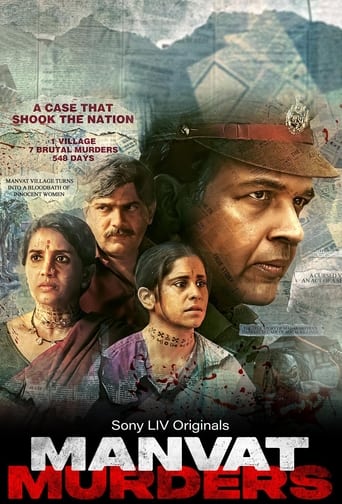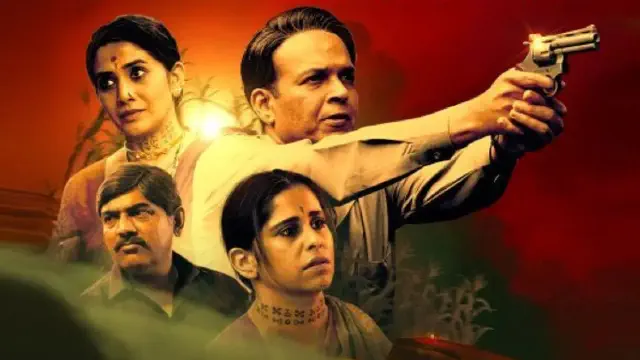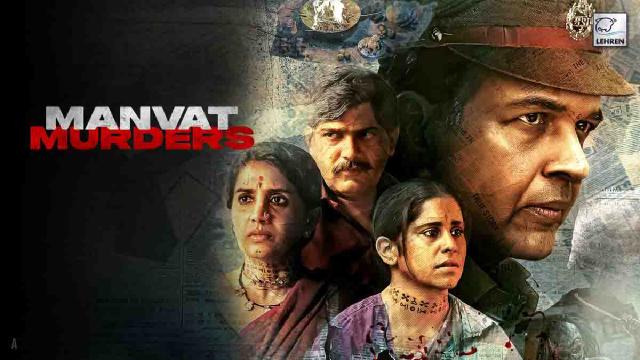About Manvat Murders

| Title: | Manvat Murders |
|---|---|
| Plot: | Seven murders; Unsolved for over one & half year. Will the ace cop from Mumbai, Ramakant Kulkarni be able to bring Justice? |
| Cast: | Ashutosh Gowariker, Sonali Kulkarni, Makarand Anaspure, Sai Tamhankar, Mayur Khandge, Kishore Kadam |
| Director: | Ashish Avinash Bende |
| Cinematography: | Satyajeet Shobha Shriram |
| Editor: | Faisal Mahadik |
Manvat Murders
Mihir Bhanage
The Times of India

Promises a lot, delivers less
Manvat Murders is gripping in parts as it retells the story of a horrific saga.
In the early 1970s, a series of murders left the residents of Manvat terrorized, and people of Maharashtra in shock. A small town in Parbhani district, Manvat saw people, mostly women, being killed over a span of about two years with a black magic ritualistic motive, as the cops would later find out. Ashish Bende’s series attempts to take a deep dive into the case through the eyes of late cop Ramakant Kulkarni’s lens. Manvat Murders is based on Kulkarni’s book Footprints on the Sand of Time, which documented his high-profile cases, including the Manvat case which he was assigned.
Manvat Murders
Rahul Desai
The Hollywood Reporter India

A Bland Retelling of a Brutal True-crime Chapter
In creating its own version of justice and resolution, the series trivialises the anatomy of the crimes.
Being a true-crime drama in the Indian streaming landscape is like being an aspiring batsman in India’s cramped bylanes and crowded fields. Everybody is one — and everybody is advised to be one. Consequently, it’s harder to stand out. The default level has to be high: an engrossing story, a solid cast, a sense of place and time, technical competence. Most shows opt for an atmospheric setting to conceal a convoluted plot; the logic is that a visually striking tone will compensate for pacing and structural issues. In other words, the style can distract from a lack of substance. But Manvat Murders, helmed by Aatmapamphlet (2023) director Ashish Avinash Bende, is a Marathi-language series that does the reverse.
Manvat Murders
Bharathi Pradhan
Lehren.com

Women & Crime — Raw, Real & Ruthless
In 1972, seven women were brutally killed in Manvat, shocking the entire country. The local police were unable to solve the case, so Special Crime Branch officer Ramakant Kulkarni stepped in to find out what really happened and reveal the hidden motives behind the murders.
The ritualistic Manwat Murders which brutally claimed the lives of innocent children and women and shook Maharashtra in the 70s, does it again. Amol Palekar had already put it effectively on screen in Akriet (1981).
